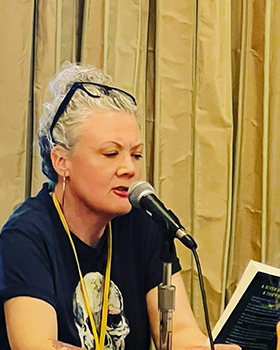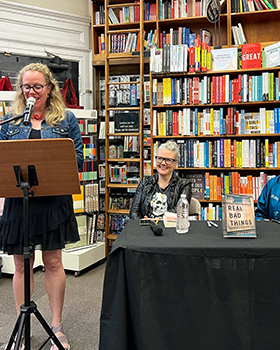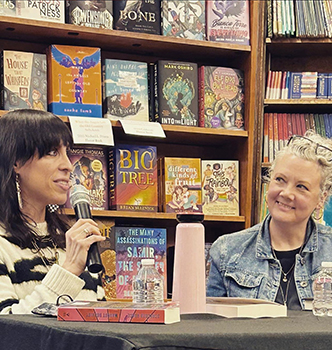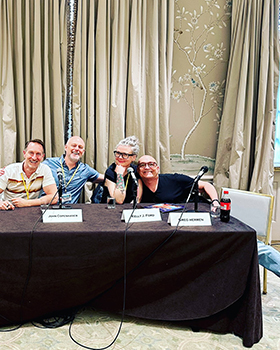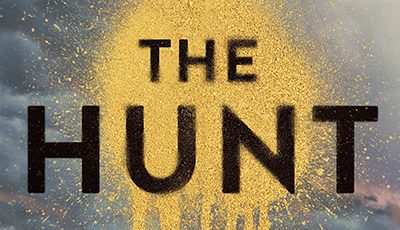

Latest Books Kelly J. Ford
Eggheads, a Psycho Serial Killer, and a Golden Egg
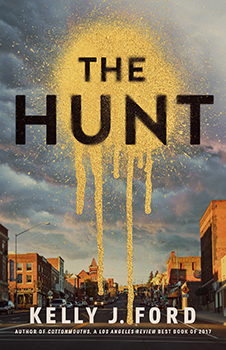 By Lisa Malice
By Lisa Malice
You can take the girl out of the small town, but you can’t take the small town out of the girl. Indeed, if you ask Kelly J. Ford, who spent the better part of three decades living and working in Boston, she never left her hometown of Fort Smith, Arkansas. As the author of three dark rural noirs set in the Ozarks and the Arkansas River Valley, Ford draws on vivid memories of growing up and coming of age in the small blue-collar town where characters, their histories, and stories abound.
“I come from a storyteller culture where my family recounted the dramas of their own long lives, sometimes outrageously so, such as my grandmother and her tales of running away from home when she was only fourteen. It was a gift to be around people who really knew how to tell a story that kept your attention, including all the right pauses needed to raise the tension.”
In fact, Ford’s latest offering, THE HUNT, is drawn from her own history, inspired by the annual Easter Egg hunt sponsored every year by her hometown radio station. “I remember listening to the radio as the DJ read the clues that were supposed to lead searchers to a golden egg and the cash prize that went with it. His voice was so creepy, so haunting, that it scared me. I knew, at some point, I’d have to wrap my head around this annual event and write about it.”
Enter Nell Holcomb of Presley, Arkansas, a maintenance mechanic who works the night shift for the local plastic cap factory, and for whom the annual hunt for a golden Easter egg is a never-ending horror story. Why? Because of the mysterious deaths that have plagued the hunt for seventeen years, starting with the death of her brother. The town is divided on who’s to blame, some laying odds that a serial murderer, nicknamed “The Hunter,” lives in their midst. Others, like the town’s devoted “Eggheads,” relish the hunt and see the deaths as no more than unfortunate accidents that happen to coincide with the annual tradition.
Nell is not so sure who’s to blame, but as the hunt draws near, she’s dragged down emotionally by the pain of her brother’s death, the secret she’s harbored since the night he first went missing, and the need to protect his son, Elijah, from the truth. As the townsfolks’ frenzied efforts to find the egg escalates, Nell must face both her past and the Hunt as the danger once again veers all too close to home.
Ford’s dark characterization of the setting—the foothills of the Ozarks—is also drawn from her own life experience and lends delicious tension to THE HUNT. “I lived with my dad outside of town, deep in the woods. It was a peaceful place that allowed my imagination and my writing to run free. At the same time, the most dangerous thing in the forest could be another human being, lending itself so easily to the dark premise of THE HUNT.”
One captivating scene that stands out in this regard finds Nell’s best friend, Ada, lost and alone in the forest while searching for the prized egg. The waning sunlight, the sounds all around her, such as the snap of a twig, leave her panicked that The Hunter is nearby, and dashing frantically through the forest to escape his clutches.
Characterization is all-important to Ford, driving what she likes to read and write. “A lot of what I write is not a whodunit. I’m more interested in why someone died than how. It’s what you get more often with true crime entertainment, especially those focused on serial killers.” Indeed, though THE HUNT is a work of fiction, the specter of true crime is ever-present in the story and goes beyond the interspersing of the profiles of The Hunter’s victims throughout the tale.
“I’m drawn to true crime stories where you get a sense of who the victims were, and more intriguingly, what kind of hole they left behind for their loved ones. What fills that hole is what I’m interested in, wondering about the emotional shock of the loss, even over time, as happens in THE HUNT. Desperation to explain away an unexplainable death can often drive people to imagine all sorts of scenarios. In THE HUNT, as the bodies pile up, the collective hole gets bigger, leading many to speculate that a serial killer is to blame for the deaths.”
For Nell, that gaping hole is her brother. She has never gotten over her brother’s death, never stopped blaming herself for her role in his disappearance that night. To atone, she takes on the burden of raising her brother’s son, seemingly protecting him and the rest of her family by keeping herself physically and emotionally distant. But rather than ensuring her nephew’s safety, Nell’s self-imposed isolation leaves him exposed, caught up in the Hunt with Ada until he mysteriously goes missing.
As with many true crime stories, THE HUNT doesn’t have a tidy ending. “I prefer my endings a bit messy, a tad subjective, just like life gives us. I’m drawn to stories that mirror reality, that make you think, such as true crime tales, where often there really are no answers.” From that perspective, THE HUNT is a gripping story that will keep readers guessing until the very end—and beyond.
- Esme Addison - June 27, 2024
- Kelly J. Ford - August 22, 2023
- Andrea Bartz - July 5, 2023

